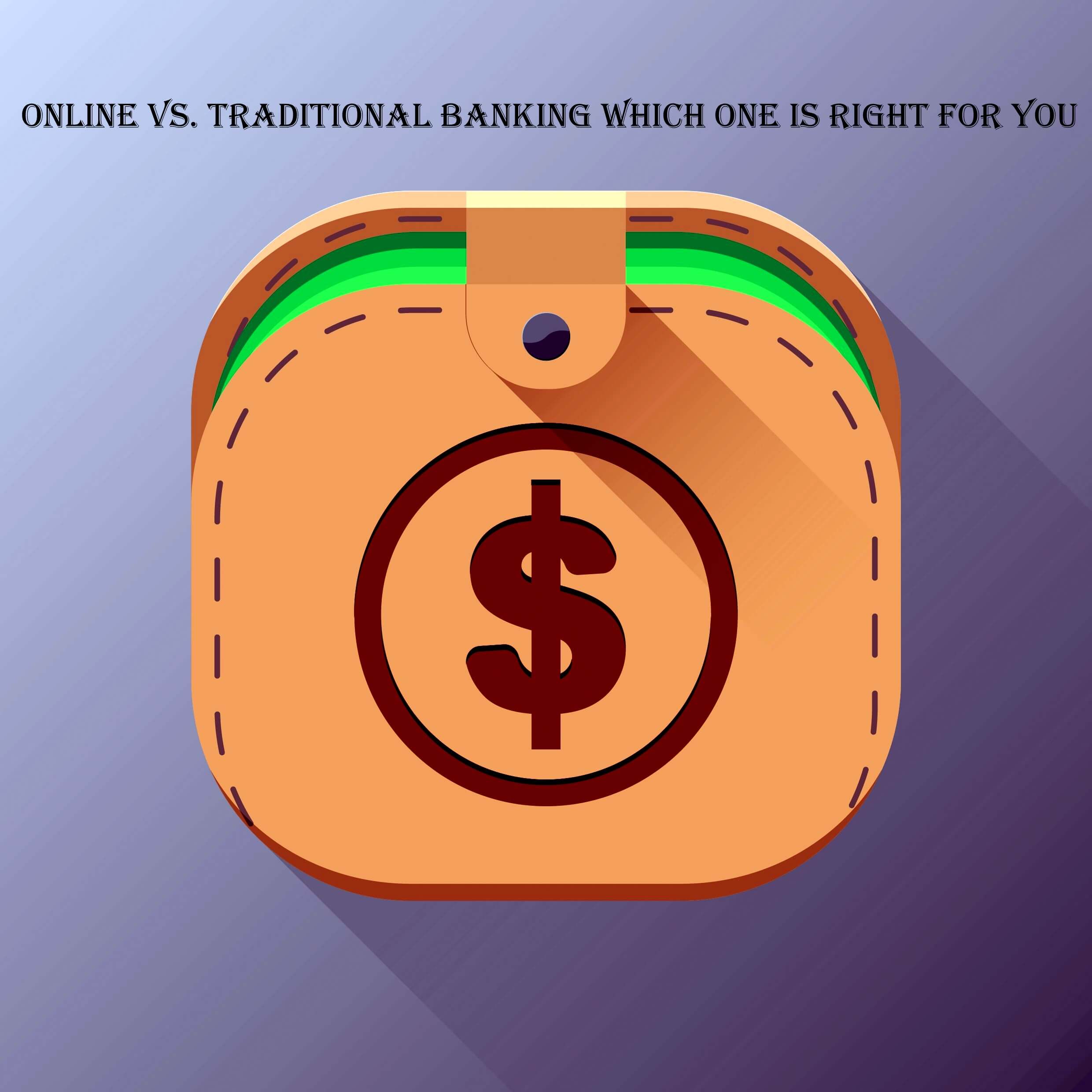Online vs. Traditional Banking: Which One Is Right for You?: Choosing between online and traditional banking depends on individual preferences and needs. Online banking offers convenience and 24/7 access, while traditional banking provides in-person assistance and a physical presence. Consider factors like tech-savviness, transaction frequency, and comfort with digital platforms to determine the best fit for you.
Online vs. Traditional Banking: Which One Is Right for You?

Online vs. Traditional Banking: Which One Is Right for You?
The advancement of technology has transformed the banking industry, offering consumers two primary options: online banking and traditional banking. Both approaches have their unique advantages and cater to different preferences and needs.
Understanding the distinctions between these banking methods can help you determine which one is the right fit for your financial management style.
Online Banking:
Advantages:
- Convenience: Online banking provides unparalleled convenience with 24/7 access to your accounts from anywhere with internet access. You can manage your finances, transfer funds, pay bills, and even deposit checks using mobile banking apps, offering the flexibility to handle financial tasks on the go.
- Time-Saving: With online banking, you can avoid the need to visit a physical branch, saving time and effort. You can complete transactions quickly and efficiently, eliminating the need to wait in long queues.
- Access to Information: Online banking allows you to access real-time account information, transaction history, and electronic statements. This transparent access to financial data empowers you to make informed decisions about your money.
- Reduced Fees: Many online banks offer lower or no fees compared to traditional banks. The absence of physical branches often reduces operational costs, resulting in cost savings for customers.
- Enhanced Security: Reputable online banks implement robust security measures, such as encryption and multi-factor authentication, to protect sensitive financial information. Regular account monitoring and real-time transaction alerts add an extra layer of security.
Consider Online Banking If:
- You prefer the convenience of banking on-the-go and managing finances through digital platforms.
- Your transaction frequency is high, and you need quick and efficient banking services.
- You are comfortable with technology and digital interfaces.
Traditional Banking:
Advantages:
- Personal Interaction: Traditional banking offers face-to-face interactions with bank staff. You can discuss financial matters, seek advice, and
receive personalized assistance.
- Cash Transactions: Traditional banks provide easy access to cash through in-branch withdrawals and deposits. This can be advantageous for individuals who handle a significant amount of cash transactions.
- Complex Financial Needs: For complex financial matters like mortgage applications or investment advice, traditional banks with specialized personnel may offer tailored solutions.
- Physical Presence: Having a physical branch presence can be reassuring for some customers who value a tangible connection to their bank.
- Wide Range of Services: Traditional banks often offer a broader range of services, including safe deposit boxes and certified checks.
Consider Traditional Banking If:
- You prefer face-to-face interactions and personalized assistance.
- Cash transactions are a significant part of your financial routine.
- You require complex financial services and advice.
- A physical presence and access to in-branch services are essential to you.
Hybrid Approach:
Many banks offer a hybrid approach, combining online and traditional banking services. Customers can take advantage of both digital convenience and in-person support. This hybrid model appeals to those who appreciate the convenience of online banking but also value the human touch and specialized services offered by traditional banks.
Security Considerations:
Security is a crucial factor when choosing between online and traditional banking. Online banking employs advanced encryption and authentication measures, making it a secure option. However, it’s essential to follow best practices, such as using strong passwords and avoiding public Wi-Fi for banking transactions.
Traditional banking relies on physical security at bank branches, but you should still exercise caution while handling sensitive information and avoid sharing personal details with unauthorized individuals.
Final Considerations:
When deciding between online and traditional banking, consider your lifestyle, transaction preferences, comfort with technology, and the level of personalized assistance you desire. Many individuals find online banking to be a convenient and secure option, while others value the in-person services provided by traditional banks. Additionally, a hybrid approach can offer the best of both worlds. Ultimately, the right banking method for you will depend on your unique financial needs and preferences.
